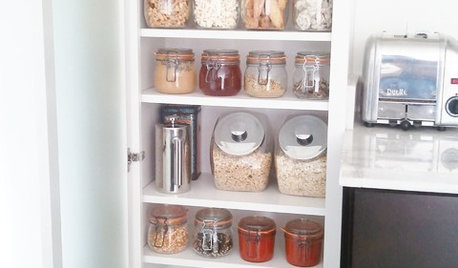I live in India, in a small studio apartment and am planting a (very small) kitchen garden in containers and trying to compost at home. There aren't any local suppliers of earthworms, few shipping earthworm starters and the one offer I got was very expensive.
What I have done is purchased a vermicompost that specifically mentioned it has cocoons and will encourage earthworms in the soil, and added it to a bin of mixed materials (kitchen scraps, corrugated cardboard + newspaper for bed, and such). I also found a couple of earthworms wandering after the rain and put them in.
Now for my questions.
1. Is it reasonable to put in vermicompost and expect the cocoons in it to hatch enough to start a bin? (slow is fine)
2. How in the world to pick out cocoons from it (I added some of it, but I'd like to pick cocoons from the remaining and add too)? Thing is, what I have is a dry vermicompost, and there is nothing that looks like the glossy prominent cocoons in it. There are plenty of small white/cream specks, but they don't look anything like the cocoons I'm seeing in pictures. Is this a fool's errand, or is there something I have missed, or do dried cocoons look different, and if there are images someone can point me to.
3. The stray worms I found are almost certainly not the vermicomposting breeds (no idea what they are, beyond "earthworms"). They also seem mostly young. Is it okay if there are different species of earthworms in the same bin?
4. Is it a good idea to go worm hunting and just dump in all I can find to start a local earthworm breed bin?
5. I am not able to make out what exactly is going on with the bin. It doesn't smell particularly decomposing or ammonia, or anything. If anything, it smells nice. Like wet soil (or maybe I'm warped). Does this mean that nothing is going on? I am not able to find the worms for the most part. There's a lot of bedding and stuff in there, and at best I see one or so.
6. Some of the food seems to be breaking down, but I'm not sure if that is from the earthworms or sitting in the bin getting bored waiting for the earthworms. The material also seems to have compacted more, though to the best of my ability to assess, it doesn't seem packed tight. When the level went down and the top bedding got damp (from me pulling it away to see all the time :p) I saw two fruit flies, so I added some more dry shredded cardboard right on top. I haven't wetted this cardboard at all (it is for discouraging the fruit flies, not earthworms) - will this be an issue?
7. I got some compost microbes product, which the chap says will increase microbe activity and he said it is beneficial for earthworms by making more food available. Should I add it? Will it help them thrive? (There's plenty of food in that bin, also plenty rotting food).
This probably sounds quite muddled, but it is my first bin, and I think I have read too much and am trying to do too much without actually having earthworms in hand, so to say :(












MaryAnn1950
sbryce_gw
Related Professionals
Redondo Beach Landscape Architects & Landscape Designers · Saint Louis Park Landscape Architects & Landscape Designers · Wareham Landscape Architects & Landscape Designers · Belmont Landscape Contractors · Boca Raton Landscape Contractors · Choctaw Landscape Contractors · Cockeysville Landscape Contractors · Gurnee Landscape Contractors · Chicago Ridge Landscape Contractors · Four Corners Landscape Contractors · Bowling Green General Contractors · Cedar Hill General Contractors · Elmont General Contractors · Longview General Contractors · Red Wing General ContractorsvidyutOriginal Author
vidyutOriginal Author
sbryce_gw
yendor777
sbryce_gw
yendor777
vidyutOriginal Author
yendor777
Jasdip
equinoxequinox
yendor777
Jasdip
vidyutOriginal Author
mendopete
vidyutOriginal Author
yendor777
MaryAnn1950